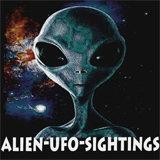The Trouble with Theft
Serious UFO study demands time and dedication, financial support, and an ability to distinguish fact from fancy. Because of that, and because of the particular nature of creative people, a man who retitles another person’s UFO documentary or lecture and offers it for unauthorized sale on the Web perpetrates a hoax, and invites approbation and censure from the UFO community. Around 2008, UFO researcher Dennis Balthaser discovered that a self-described UFOlogist named Bill Knell had purloined a Balthaser lecture DVD, The Roswell Incident: Then and Now. Knell called it Aliens Among Us: Stunning Secrets About UFOs and Extraterrestrials, and pressed it to DVD to sell as his own work. Whatever money coaxed from visitors to Knell’s Web site went to Knell, and not to Balthaser. Of course, this kind of base, sneaky-Pete theft is criminal. Balthaser and others whose DVDs had been pirated and sold by Knell contacted the FBI and an FBI partner, the IC3 (Internet Crime Complaint Center). In addition, contact was made with local law enforcement at Knell’s Indiana place of residence. Numerous Knell Web sites subsequently shut down, but Knell simply shifted his sales operation to other sites. (In years past, Arizona civil cases brought against Knell and his wife ended with the couple being ordered to make restitution for activity related to credit card fraud and other complaints.) Knell’s scheme plundered the work of about eighty UFOlogists, including Erik von Däniken, Jim Marrs, Linda Moulton Howe, Brad and Sherry Steiger, Whitley Strieber, and other notables. The intellectual property of deceased UFOlogists also was stolen; among those victims were Frank Edwards, Donald Kehoe, CBS newsman Edward R. Murrow, J. Allen Hynek, Long John Nebel, and Paul Bennewitz.
The hammer fell on Mr. Knell in 2010–11, not for piracy but for “neglect of a dependent”—child neglect. His wife also was charged. Local police and investigators with the Indiana Department of Child Services discovered rotted food in the Knell refrigerator, and feces-smeared bathrooms and furniture. Early in 2011, Knell’s wife pleaded guilty to three counts of child neglect; she received a sentence of more than four years (suspended) and two years’ probation. Later in 2011, Bill Knell accepted a plea deal. Like his wife, Knell avoided jail via suspension of his sentences, but immediately began a ninety-day period of active monitoring. Following that, he was to start a two-year probationary period, during which he was to remain in Indiana, and conduct no business on the Internet.
On the face of it, Knell’s brand of UFO hoax may not seem to have explicit relevance to the veracity of UFO reports, but it does, partly because pirates contacted by media in search of “experts” proceed to do an awful job explaining research and thinking that is not their own. In that, the whole UFO community suffers, and the public is deprived of honest insights.
